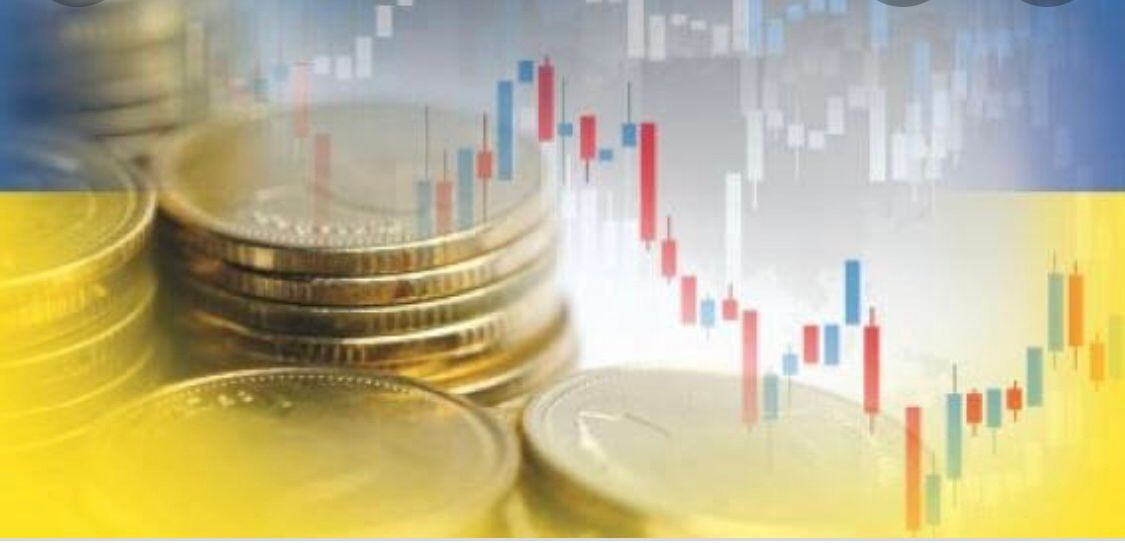
On 24th February 2022, Putin’s forces stormed into its’ neighbour’s territory, forcefully invading Crimea and therefore, marking the beginning of a full-fledged conflict, a move that would heavily bear down on both the economies as well as the rest of the world. Just like the two sides of a coin, the tussle has had a significant impact on both the parties involved.
Be it a poor European country or even a superpower, every nation’s economy crumbles as it comes under the grasp of war. Back in Russia, the Ruble has fallen by over 18% ever since the beginning of Russian aggravation in Ukraine. Dozens of people line up outside to withdraw money from the banks that seem to be running low on money. The desperate struggle for money led to unusual activity in the Russian markets. Citizens have begun hoarding electronic devices as they believe these devices are more reliable sources of income than their salaries.
It is not just one sector that has been affected but the world’s cooperative boycott of Russia has affected all aspects of its economy. Tech giants like Microsoft, Samsung, Apple and Intel have stopped new sales in the Russian territories as a mark of protest against such agitation. Food chains like McDonald’s along with Netflix and Tic Tok, representing the entertainment sector, have suspended their business operations as well.
The country had to incur heavy losses of approximately 7 billion dollars within the first four days of initiating the bloodshed. As per reports, the cost of war for Russia could go up to 20-25 billion dollars and yet this is just the tip of the iceberg. The anti- Russia actions of the world powers are tearing down the super-powers’ economy. Close to 33 countries have sealed their airspace for Russian Airlines, as a result of which, 1.5 lakh Russian tourists have been stranded. The key players in the aviation sector, Boeing and Airbus have stopped sending their spare parts to Russia, preventing the country’s airlines from receiving essentials for further production of air crafts.
Top brands in the fashion industry such as H&M and Puma along with several multi-national companies like BMW, Toyota, Honda, Volkswagen, Mercedes, and Jaguar have stopped exports as well as production on the Russian land. Air BNB, a company serving in the hospitality sector has ceased its services, greatly diminishing the tourism in the nation.
Oil giants such as BP and Exxon Mobil stated that they would dump around 19% stake in the Russian state-owned energy companies. Foreign companies have also retaliated against the invasion and as a response to Russia’s aggression, the enterprises have withdrawn their investment from Russian companies and investors will not undertake future investments in the country.
Adverse reactions were seen in the sports industry as well. The two largest football associations, FIFA and UEFA have suspended the entry of Russian teams in international tournaments. Formula One Grand Prix, in which Russia had to be the host, now stands cancelled. Meanwhile, Visa and Mastercard, the two primary methods of payment have suspended Russian operations and have blocked Russian Banks from their payment networking. These two portals accounted for almost 74% of Russian transactions which will now not be valid. International payment transfer companies, Remitly and Wise have also halted their operations. Apple Pay, Google Pay and Samsung Pay are significant for facilitating online transactions. They too, have barred Russian Bank customers from accessing these platforms. Consequently, people turned to cash transactions and in dire need of money, they turned to ATMs at the same time due to which the banks eventually ran out of cash.
Since the invasion occurred, Russian stock markets have been shut by the government as they anticipated a great plunge in trading activities. Sanctions have been levied on the country as a penalty for the initiation of war. Putin knew the implications his actions would have on the country and therefore, tried to prepare the nation for the worst. The Society for Worldwide Interbank Financial Telecommunications (SWIFT) has cut off Russian banks from this payment system, implying that Russian banks can no longer transfer money to and from international sources. This system is utilized by financial institutes worldwide and in more than 200 countries. It communicates the transfer of payment between banks. A similar penalty was imposed on Iran as well, resulting in the country losing one-third of its exports.
In 2014, the Russian occupation of Cremia, bestowed upon the nation, a lighter version of the SWIFT penalty. Since then, Russia has developed a domestic messaging system for facilitating inland payments, reducing the impact of the penalty.
The Russian Central Bank stated the country’s assets have been frozen. The forex, the foreign exchange reserve held by the country amounts to a lump sum of 630 billion dollars. Nations worldwide have refused to accept these dollars for facilitating international trade. The foreign properties and assets belonging to Putin and his allies that are, the Russian oligarchs are being seized by governments. Many billionaires have moved their movable properties into territories where the West has no say. Flight bans have also been implemented on the oligarchs so that these severe steps can influence Putin to ceasefire.
Russia has been gifted with an abundance of natural oil and gas and supplies these products to almost one-third of the European continent. The United States claimed to be oil sufficient and promised to fulfil Europe’s oil requirements to cut off its dependency on Russia. Owing to the hyperinflation of 18-23%, the economy has contracted significantly leading to unemployment and other economic problems. This trend, if continues, will push Russia into further depths of recession, from which its’ recovery may be impossible.
The victims’ condition is also hard to look at. Ukraine is the poorest European country whose GDP was valued at around 150 billion dollars in 2020, recording its GDP per capita at 3700 dollars. Unemployment rates touched 10% and millions more have been rendered jobless. Despite such conditions, the country managed to have a healthy GDP to debt ratio of around 48.9, one of the lowest in the continent.
Back in 2014, the nation witnessed violent fluctuations in its economy, recession in that year created a dent in the financial sector from which the state could never fully recover. Prior to the recession, in 2013, the GDP stood at 180 billion dollars while the trade deficit of 8 billion dollars was recorded each year as exports were much lesser than the imports. The exports mainly consisted of coal, oil, natural gas and industrial machinery while food and metals constituted the imports from the country.
Ukraine was struggling to reach the pre-revolution economic highs but the instantaneous invasion worsened the situation. Ordinary functioning of the state was being interrupted, making it harder for the nation to lend or borrow money as investors were sceptical about providing money to a country that might cease to exist after the conflict is put to rest.
The financial burden due to the war is the greatest threat Ukraine is facing today. War expenses are taking a toll on the economic wealth of the nation as payments have to be made to the soldiers and the government is responsible for providing relief to all its displaced citizens, supported by lower tax revenues.
Damages amounting to 100 billion dollars have been incurred on the destruction of infrastructural facilities and transportation has faced losses of approximately 40 billion dollars, making inter and intranational trade difficult. Ukraine’s largest metallurgical enterprises have been destroyed, a piece of devastating news for the country as it was the largest exporter of metals such as iron and steel. Russian forces have been quick in snatching away all the geographical advantages that Ukraine once enjoyed. The Black sea is inaccessible to the natives, disrupting the export and import services. The southern coastlines are being occupied by the Russian military, cutting off the nation from the rest of the world. The Ukrainian port city of Odesa has been mined by the citizens to deter the arrival of Russian ships inland. The restrictive actions of its neighbour between February and March have halved the country’s exports and dwindled the imports by two-thirds.
The skirmish has disrupted several Ukrainian businesses, almost 30% of enterprises have ceased operations, and 45% are working but at a reduced capacity. The turn of events cost 5 million citizens their jobs, which could rise to almost 7 million in no time. Refugee Crisis is another outcome of the current tensions, 5 million people fled from their own country and another 7.7 million remain displaced. In March 2022, Ukrainian GDP shrunk by 25-30% as per the reports of the IMF, while the World Bank predicted a fall of almost 45% in the GDP by the end of this year.
The central bank of Ukraine stated that the GDP had halved and the cross-country violence has crippled its’ economy. The war-torn nation seeks the recovery of its infrastructure, requiring the implementation of the latest technology, the country also requires a new military force along with new political institutions. The centre of economic policy research stated that the cost of rebuilding Ukraine would be around 200-450 billion USD while the government claimed the recovery charges would range from 600 billion-1 trillion USD.
The cost of war was met by utilizing public finances, the government increased its external debt to 75 billion dollars and yet, spends 5 billion dollars in excess of what it receives. Government revenues have also seen a dip of 50% while customs revenue diminished by 75%, leading to a deficit of 60% in the GDP. Increased average spending has increased the cost of borrowing for the nation, the Ukrainian hryvnia has fallen by 10%, inflation has skyrocketed by 11%, eventually digging a deeper grave for the country’s economic future.
Looking at the current conditions of both the parties involved, it is evident that war is detrimental for the countries even if the battle is not occurring within its geographic boundaries. Putin needs to make better decisions in the future considering the impact of the economic sanctions on the country if he wishes to own the “superpower” status while Western allies need to extend their helping hand to Ukraine which is, on the brink of extinction. This conflict is not just restricted to the countries directly involved but also extends worldwide. The ripples of destruction and massacre can be felt in every corner of the world. Thus, countries need to reach a common point to end the violence immediately and resolve any differences peacefully. If such an action is not taken in time, the world could be progressing into what could be termed the Third World War.
Nikita Jain –
Welham Girls School.







